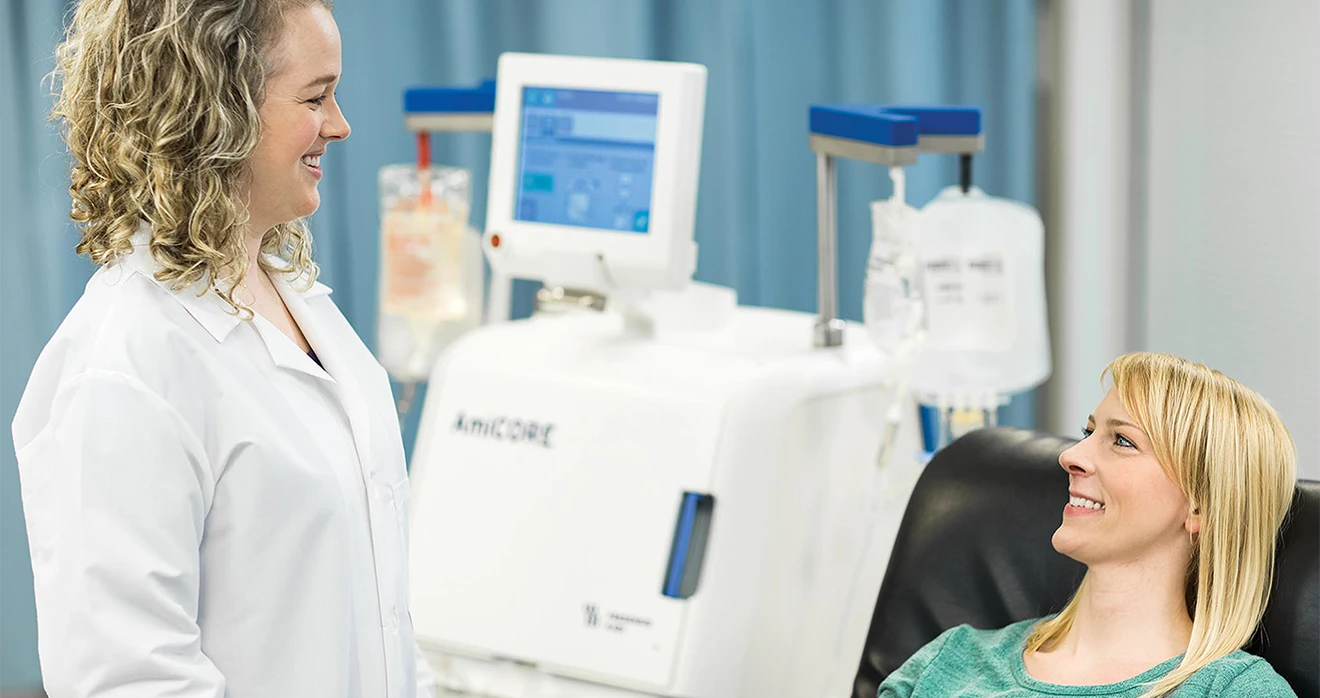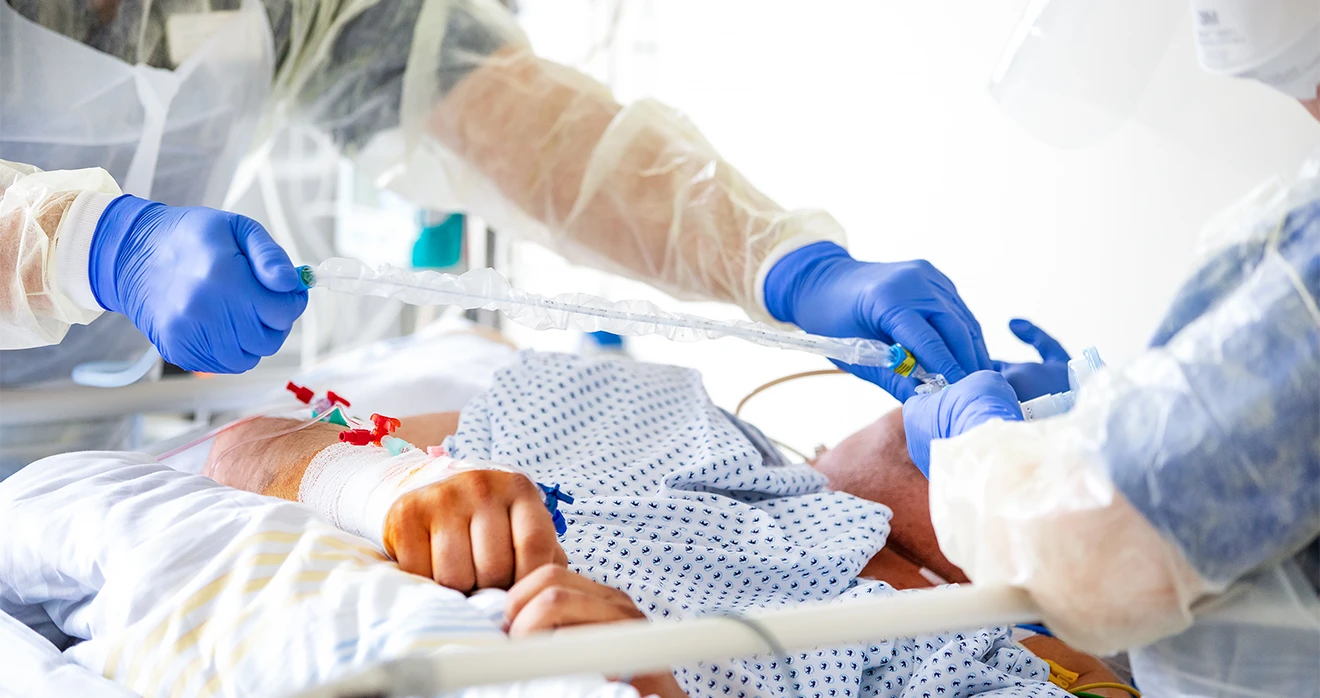We are committed to conserving natural resources wherever possible. In doing so, we always have to strike a balance between resource efficiency and hygiene requirements. Disposable items are often used in clinics for hygienic reasons. Our options for saving resources are limited here. There are also strict regulations for medication packaging that make this difficult for us. Our most important levers for conserving resources are therefore developing durable and resource-saving products, reusing resources wherever possible, and disposing of waste safely and systematically.
Resource efficiency at a glance: From procurement to disposal
To use raw materials efficiently and responsibly, we must closely monitor our resource inflows – in other words, all the raw materials and substances that we procure and use. At the same time, resource outflows in the form of waste offer great potential for the recovery of valuable resources. We strive to minimize waste and reuse or recycle it wherever possible. Appropriate handling and hygienic disposal of waste are essential.
Active pharmaceutical ingredients (APIs) play a key role in our production, followed by plastic parts and packaging. Consumables for care and medical treatment are indispensable in our healthcare facilities.
Long-lasting products: Repair and prolonged use
A long product service life makes it possible to use medical devices for longer and to delay replacement. This conserves resources and reduces waste. The medical devices from Fresenius Kabi, such as infusion pumps, are designed for a service life of several years and can be repaired by trained service personnel. We provide appropriate manuals and manufacture spare parts at our production sites. With regular maintenance, our products currently have a service life of seven to fifteen years. After the end of production, spare parts remain available for a seven- to ten-year period.

Product development: Conserving resources from the outset
We also take environmental considerations into account when designing new healthcare products and improving existing ones. For example, we have reduced the plastic content of our EasyBottle containers for nutritional drinks by more than 30% since 2011. We are also striving to reduce the amount of packaging required for finished products. We also take customer and patient feedback into account to reduce unnecessary waste in our product packaging. However, since we have to meet strict requirements for pharmaceutical products, we can only optimize medicines and their protective packaging to a certain extent in order to conserve resources. After all, safety always comes first.
Efficiency in everyday clinical practice: Reusing products safely
Particularly strict safety and hygiene regulations apply in hospitals; aids such as face masks and syringes must be disposed of after a single use. Nevertheless, we aim to conserve resources and to use products several times wherever possible. For example, medical instruments and aids such as scalpels and clamps can be carefully cleaned, sterilized, and repackaged for reuse. This helps us to save on disposable items.
Gloves are among the most frequently used disposable items at Helios in Germany. We use them to ensure the hygienic handling of secretions or blood, for example. In some situations, however, pathogens can be more easily transmitted by gloves than by disinfected hands. With a campaign in our German clinics that includes training courses, posters, and stickers, we are therefore drawing attention to the improper use of disposable gloves – and the associated high consumption of resources. As a result, in 2024, we returned to the pre-COVID-19 pandemic consumption level.

Focus on safety and hygiene: Correctly disposing of and recycling waste
Systematic waste management helps us live up to our claim of efficiently using resources – while having as little impact on the environment as possible.
Waste disposal is subject to strict regulations that are designed to prevent the environment from being polluted or people from being put at risk. In some cases, these regulations vary depending on the municipality, country, and business segment, which is why we adapt our waste management in line with the respective business activities.
Depending on its type, our waste undergoes various disposal and recycling processes.

